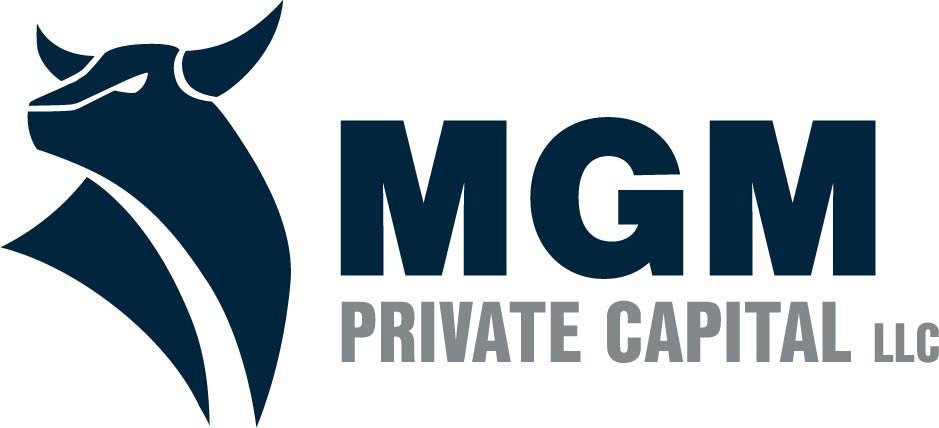Key Takeaways from the 2025 Tax Bill for Real Estate Investors
Can smart investors turn tax rules into powerful wealth-building tools?
We don’t usually feel that new tax laws afford new opportunities, but for those of us in real estate and private lending, the 2025 tax legislation offers a few meaningful shifts worth understanding.
I recently reviewed a presentation by John Hyre, a respected tax attorney and CPA who’s worked with real estate investors for decades. His take was refreshingly grounded with practical, investor-focused insights.
Here are a few takeaways that matter if you’re building a real estate portfolio or actively lending capital.
The QBI Deduction is Here to Stay
One of the most impactful pieces of the 2017 tax law—the 20% Qualified Business Income (QBI) deduction was made permanent in the 2025 tax bill.
For real estate professionals and active private lenders, this is good news. If your activity rises to the level of a trade or business (which it often does if you’re managing deals, borrowers, or properties with regularity), you can deduct 20% of your net income from that activity.
That’s real tax savings!
But it’s important to note:
Passive investors who simply collect mailbox money may not qualify.
Triple-net leases and single properties on autopilot likely won’t meet the bar.
Documentation matters! Track time, intent, and operations, and always confer with a CPA.
What to do:
Ask your CPA how they’re treating your rental or lending income in relation to QBI. If you don’t see a deduction on Line 13 of your 1040, it may be worth a deeper conversation.
Accelerated Depreciation Is Still in Play
If you’re buying or improving income-producing properties like rental units, commercial buildings, or other real estate that generates cash flow, tax rules are still very favorable. Two key tools, bonus depreciation and Section 179, allow you to write off a large portion (sometimes even 100%) of the cost of specific improvements or equipment in the first year, rather than spreading those deductions out over many years.
What does this mean in simple terms?
Instead of waiting 20 or 30 years to slowly deduct the cost of things like new roofs, HVAC systems, or commercial appliances, you may be able to take a big deduction right away, lowering your taxable income now and keeping more money in your pocket to reinvest in your business.
Used well, these tools can help offset taxable income in years where you’re growing or improving your holdings.
IRS Audits Are Increasing In Frequency and Sophistication
This part isn’t about fear—it’s about preparation.
The IRS auditors are digging deeper and using sophisticated technology to flag patterns in:
QBI (Qualified Business Income) deductions – Are you correctly classifying your real estate activities as a trade or business, and are your deductions legitimately tied to that business?
Professional real estate status – Are you meeting the strict hour and activity requirements to qualify, or are you overstating involvement?
Documentation of deductions – Can you show clear evidence for repairs, improvements, mileage, travel, and other claimed expenses?
Even small investors are on the IRS radar because technology now scans for patterns—like unusually high deductions or inconsistent records—rather than just big dollar amounts. A sloppy $3,000 write-off can raise as many flags as a $30,000 one.
Again, working with your CPA is key here. Being proactive now can save significant headaches later. Here’s what we're considering in order to stay audit-ready:
✅ Clean, consistent bookkeeping. Use simple, reliable systems to keep income and expenses organized. Monthly reconciliations go a long way.
✅ Clear documentation of hours worked and business purpose. A simple spreadsheet or calendar log showing time spent on property management, tenant communications, or deal analysis is invaluable.
✅ A written business plan, even if informal. It doesn’t have to be a 50-page document, but having a short, written outline of your goals, strategy, and acquisition plans shows that your investing is intentional, not a hobby.
You don’t need complicated software or corporate-level systems. The goal is consistency. Organized records not only withstand IRS scrutiny but also help you make better business decisions.
Final Thoughts
At MGM Private Capital, we work with investors who see real estate and private lending as more than side projects. Collectively, we view real estate as a vehicle for long-term wealth and financial independence. The new tax code appears to reward that mindset, but only when you approach investing with structure and intent.
The 2025 tax bill didn’t bring sweeping changes, but it reinforced a critical truth: when you run your investing like a business, the benefits could compound over time. Deductions, depreciation, and strategic tax planning can be more accessible when you treat your portfolio with the same care and discipline as a serious enterprise.
If you’re unsure how these updates affect your portfolio—or how to best position yourself for what’s ahead—schedule time with a tax advisor who understands real estate and private lending. A generalist CPA may be great for standard returns, but in this space, you need someone who knows how to leverage the rules that were written with investors in mind.
And as you plan your next investment, MGM Private Capital is here to support your southeastern Wisconsin rental, rehab, or construction deal! Call me today to explore your options.
At MGM Private Capital, we actively support real estate investors across Southeastern Wisconsin with trusted capital options and offer opportunities for capital partners to grow alongside us.

